September 01, 2015
Borges' El Aleph: A story like no other.
O God, I could be bounded in a nutshell, and count myself a king of infinite space.
- Hamlet Act 2, Scene 2.
El Aleph is a story by Argentina's hands-down dean of letters Jorges Luis Borges first published in 1945 and revised from time to time through 1974. It is the most amazing short story I've ever read. I and two other--and far more gifted--Indian Hill (Ohio) High School classmates read El Aleph in Spanish in 1970 with Mr. Fogle in our "Spanish V" class. In the story The Aleph is a point in space that subsumes all other points in space and shows you all that is occurring in the Universe at once. Is that far-in or what?
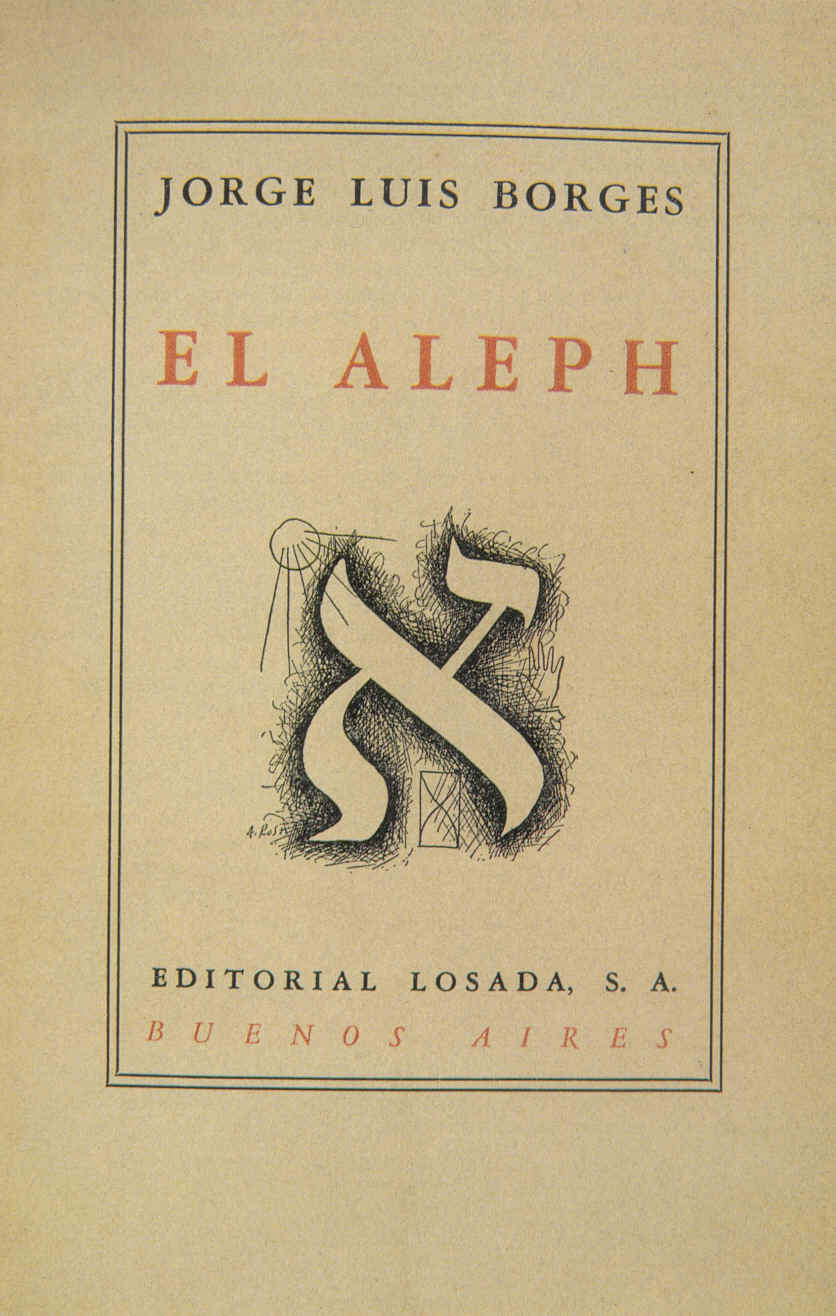
"Este palacio es fábrica de los dioses, pensé primeramente. Exploré los inhabitados recintos y corregí: Los dioses que lo edificaron han muerto. Noté sus peculiaridades y dije: Los dioses que lo edificaron estaban locos. Lo djie, bien lo sé, con una incomprensible reprobación que era casi un remordimiento, con más horror intelectual que miedo sensible."
Posted by JD Hull at 11:05 PM | Comments (0)
August 15, 2015
Jean Nicolas Arthur Rimbaud (1854-1891)
Thank you for free verse, young sir.
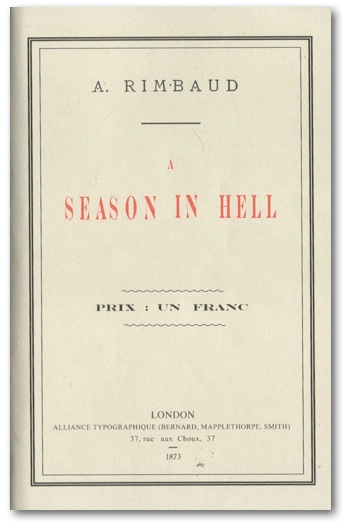
Posted by JD Hull at 12:27 AM | Comments (0)
July 29, 2015
How to work.
Detroit, July 19, 1970
Posted by JD Hull at 12:10 AM | Comments (0)
July 17, 2015
The Headless Horseman Pursuing Ichabod Crane, 1858, by John Quidor
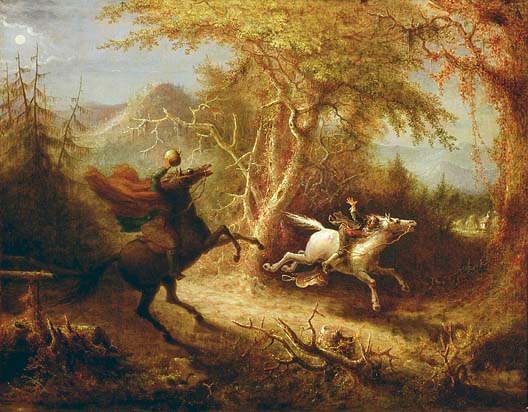
The Headless Horseman Pursuing Ichabod Crane, 1858, by John Quidor (1801-1881) Smithsonian, Washington, D.C.
Posted by JD Hull at 11:00 PM | Comments (0) | TrackBack
July 09, 2015
The Chronicle, October 23, 1974, Duke University: “Thompson, Audience Clash in Page Chaos"
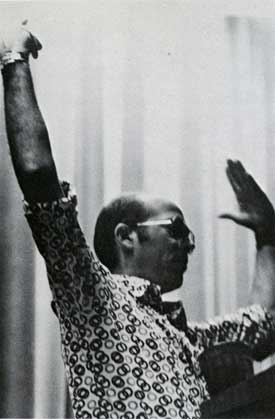
Editor's Note: The following is a verbatim reproduction of an article appearing in The Chronicle, Duke University's student daily on October 23, 1974. Page Auditorium is on Duke's West campus.
Thompson, Audience Clash in Page Chaos
By Dan Hull
"Is there any coherence in this thing? I feel like I'm in a fucking slaughterhouse in Chicago early in the morning."
DURHAM, N.C.--In a pathetic attempt to slide something coherent through his staccato mumble, Gonzo journalist Dr. Hunter S. Thompson was met last night at Page Auditorium with a bevy of jeers, curses, and a request by the Duke University Union to leave the stage.
According to Union spokespersons, it was expected that the slightly inebriated Thompson would drive away the audience if his talk turned out particularly monotonous.
Frustrated by the dialogue between the disjointed speaker and the belligerent audience, some did leave while others, many of whom were as well-oiled as Thompson, remained until the journalist was escorted off the stage.
Beer cans and joints
Beer cans and an occasional joint passed among the rows of the auditorium as Thompson, forty minutes late and looking more like a lanky tourist than a radical journalist, poked across the stage to the podium.
Slouching there, Thompson began: "I have no speech, nothing to say. I feel like a piece of meat," referring to his marketing by his lecture agency.
Having tossed aside the index cards on which were written questions from the audience, Thompson received few serious oral questions from the audience.
"What I'd really like to be in is an argument" he said.
When a baby cried Thompson mumbled, "That's the most coherent fucking thing I've heard all night."
In most cases, serious questions, and Thompson's responses to them were inaudible or incoherent.
Visibly put off by the belligerent Duke audience whom he repeatedly referred to as "beer hippies."
Thompson was most relaxed and clear when talking about Richard Nixon.
"Nobody's beaten him as bad as he deserves," Thompson emphasized.
"And nobody really comprehends how evil he is. The real horror of it all is that he reflects the rot in all of us."
"Hell, we elected him. The bastard won by the greatest majority since George Washington."
Thompson then suddenly urged the audience to "go out and vote."
Maintaining that the 1968 Democratic Convention in Chicago "kicked off an era," Thompson recalled somewhat disjointedly that before going there he took along his motorcycle helmet left over from his Hell's Angels days. (In the sixties he rode with the Angels in order to research a book on the group).
"After I got there, I found out why I had brought it with me," he said.
During the forty minute encounter (he was asked to leave at about 9:30), Thompson commented briefly on other subjects.
The 1976 Democratic Presidential candidate: "Mondale."
Terry Sanford's [former North Carolina governor and then Duke president] possibly candidacy: "I hope not."
Gary Hart, the Democratic candidate for Senate in Colorado: "He'll win, but he's a sell-out."
England: "A coal mine in the Atlantic. Next to a potato farm."
When asked a serious but largely inaudible question concerning the rise of consumer politics, Thompson yanked the shotgun-style microphone off the podium attempting to focus it in the direction of the questioner, a good 25 yards away.
"Violence is always sort of a self-satisfying thing," he added.
It was at this point, reportedly, that the Union people began to seriously considered pulling Thompson from the stage.
Asked by someone whether the Rockefeller family was encouraging "cannibalism in South America," an incredulous Thompson tossed up the remainder of his Wild Turkey onto the velvet curtain behind him, and scattered the rest of his unused index cards.
Amidst jeering and confusion, Union program advisor Linda Simmons escorted Thompson off stage.
Afterwards Thompson talked for an hour with about 100 students in the garden behind Page Auditorium.
Post mortems on Thompson's abbreviated Duke debut varied. One rather inebriated disciple was overheard saying, "I thought it was great, anyway. Just great."
"But another student remarked, "I'm totally embarrassed -- for everyone."
A third student commented, "This was fantastic — guerrilla theater, theater of the absurd — - all in one night. Good times at Duke."
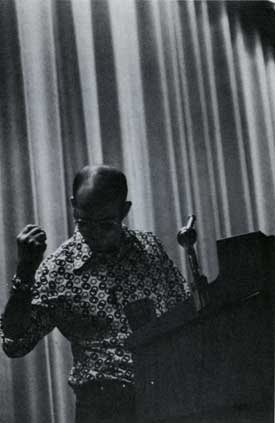
Photos: The Chronicle.
Posted by JD Hull at 12:09 PM | Comments (0)
October 02, 2014
Authentic and American: Ben Bradlee Story #1
Earlier this week we weighed in briefly on the life of former Washington Post managing editor Bill Bradlee, now 93 and ailing. Bradlee served at the Post during a long and often-turbulent period in American history (1968-1991). There are lots of great stories about Bradlee--who was outspoken, forceful, combative and funny. Many highlight verbal or written comebacks Bradlee made to those who made unfriendly or hostile remarks about the Post or him. During a spat with the publisher of another newspaper, Bradlee once wrote:
To the Publisher:
Editors do run the risk of appearing arrogant if they choose to disagree with anyone who calls them arrogant.
You sound like one of those publishers who aims to please his pals in the community and give the what they want.
No one will call you arrogant that way. No one will call you a newspaperman, either.
Source: Vanity Fair, June 6, 2012
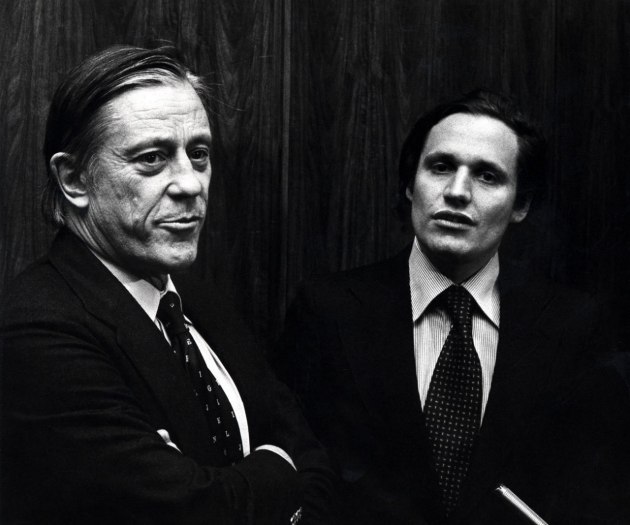
Bradlee and Washington Post reporter Bob Woodward circa 1980.
Posted by JD Hull at 04:31 PM | Comments (0)
May 31, 2014
(Van Doren on) Wordsworth.
We no longer require humor in poets. We demand salvation. Of that commodity, Wordsworth still supplies the purest sort.
--Mark Van Doren, 1950, commenting on the subtle graduation of William Wordsworth (1770-1850) from his role as "nature poet" to one of philosopher who offered hope and reassurance to troubled Europe.
All his life, Wordsworth preferred the beauty and solitude of the outdoors to London and the most literary cities on the Continent. His poetry was seeing, feeling and emotional, its inspiration springing from northwest England's famous Lake District, where he was born, wrote and spent most of his life. In his younger years especially, the upheavals in France between 1789 and 1799, and his extensive travels through Europe, made Wordsworth sad, cynical and pessimistic about man and society. Writing 100 years after Wordsworth's death, Mark Van Doren (1894-1972), the remarkably influential Columbia English professor, himself a poet who won the Pulitzer Prize in 1940, gave Wordsworth high marks for his power in his later years "to soothe and console an age fallen victim to philosophic despair."
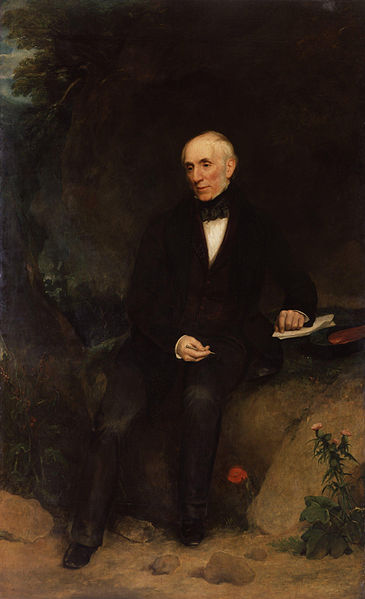
Wordsworth in the Lake District
Posted by JD Hull at 10:15 AM | Comments (0)
May 11, 2014
Oscar Wilde on Moms.
All women become like their mothers. That is their tragedy. No man does, and that is his.
― Oscar Wilde, The Importance of Being Earnest
_1889,_May_23._Picture_by_W._and_D._Downey (3).jpg)
Posted by JD Hull at 12:19 AM | Comments (0)